Frozen carrots are a versatile and convenient ingredient, perfect for saving time in the kitchen while reducing food waste. If you’re wondering, “What can I use frozen carrots for?” you’ll be delighted to learn that these pre-cut vegetables can enhance a wide variety of dishes. From soups and stews to stir-fries, smoothies, and even baked goods, frozen carrots are a reliable choice for quick and delicious meals. Their long shelf life, preserved nutritional value, and year-round availability make them a freezer essential.
In addition to their culinary uses, frozen carrots offer several practical benefits. They are flash-frozen shortly after harvest, which locks in their vitamins and minerals, ensuring a nutrient-rich ingredient for your recipes. Whether you’re preparing a comforting carrot-ginger soup or a batch of moist carrot muffins, they deliver both flavor and convenience. For more inspiration, check out Frozen Carrots Recipe Ideas to discover creative ways to use them.
This article explores the many benefits of this versatile ingredient, highlights their versatility in various recipes, and provides expert tips to get the most out of them. Whether you’re a beginner or an experienced cook, you’ll find helpful ideas and solutions to common mistakes. Ready to make the most of your frozen carrots? Let’s dive into their culinary potential. For additional ideas, visit All Recipes to explore more delicious and practical dishes.
Table of Contents
Benefits Of Using This versatile ingredient
Frozen carrots are more than just a backup option when fresh produce isn’t available. They offer several practical and nutritional advantages that make them a valuable addition to your kitchen. From saving time to retaining essential nutrients, here’s why they are worth considering.
1. Retained Nutritional Value
This versatile ingredient are flash-frozen shortly after harvesting, which helps preserve their nutrient content.
- Rich in Beta-Carotene: A key antioxidant that supports eye health and boosts immunity.
- High in Vitamin A: Essential for maintaining healthy skin, vision, and overall body function.
- Fiber Content: Frozen carrots retain their dietary fiber, promoting good digestion.
- Comparison to Fresh Carrots: While fresh carrots are nutritious, freezing ensures that vitamins and minerals are locked in, even during storage.
2. Convenience and Time-Saving
One of the most significant benefits of this versatile ingredient is their convenience.
- Pre-Cut and Ready to Use: No need to peel or chop carrots, saving you preparation time.
- Always Available: Frozen carrots can be purchased year-round, regardless of seasonal availability.
- Long Shelf Life: Unlike fresh carrots, which can spoil quickly, they can last for months when stored correctly.
3. Reduced Food Waste
- Minimized Spoilage: With a longer shelf life, they reduce the likelihood of waste from unused fresh produce.
- Portion Control: Frozen carrots often come in pre-portioned bags, allowing you to use only what you need for each recipe.
4. Versatility in Cooking
Frozen carrots are highly versatile and can be used in a wide variety of dishes.
- Soups and Stews: Add sweetness and texture to dishes like carrot-ginger soup or beef stew.
- Stir-Fries and Roasted Dishes: Perfect for quick, flavorful meals.
- Smoothies and Baking: Ideal for adding nutrients to drinks or creating moist carrot cakes and muffins.
For more creative ways to use this versatile ingredient, check out Frozen Carrots Recipe Ideas for inspiration.
5. Cost-Effective Option
- Affordable: Frozen carrots are often more cost-effective than fresh ones, especially when purchased in bulk.
- Fewer Losses: Because they’re pre-cut and preserved, you don’t pay for unusable scraps or waste.
6. Easy to Incorporate into Meal Prep
- Quick Additions: They can be added directly to soups, stir-fries, or casseroles without thawing.
- Ideal for Meal Prep: They simplify the process of preparing dishes in advance, saving time on busy days.
For more meal-prep tips, visit All Recipes to discover additional time-saving ideas.
With their preserved nutrients, long shelf life, and incredible versatility, they are a smart and practical choice for any home cook. Whether you’re making a quick weeknight dinner or preparing a special dessert, frozen carrots can fit seamlessly into your culinary plans.
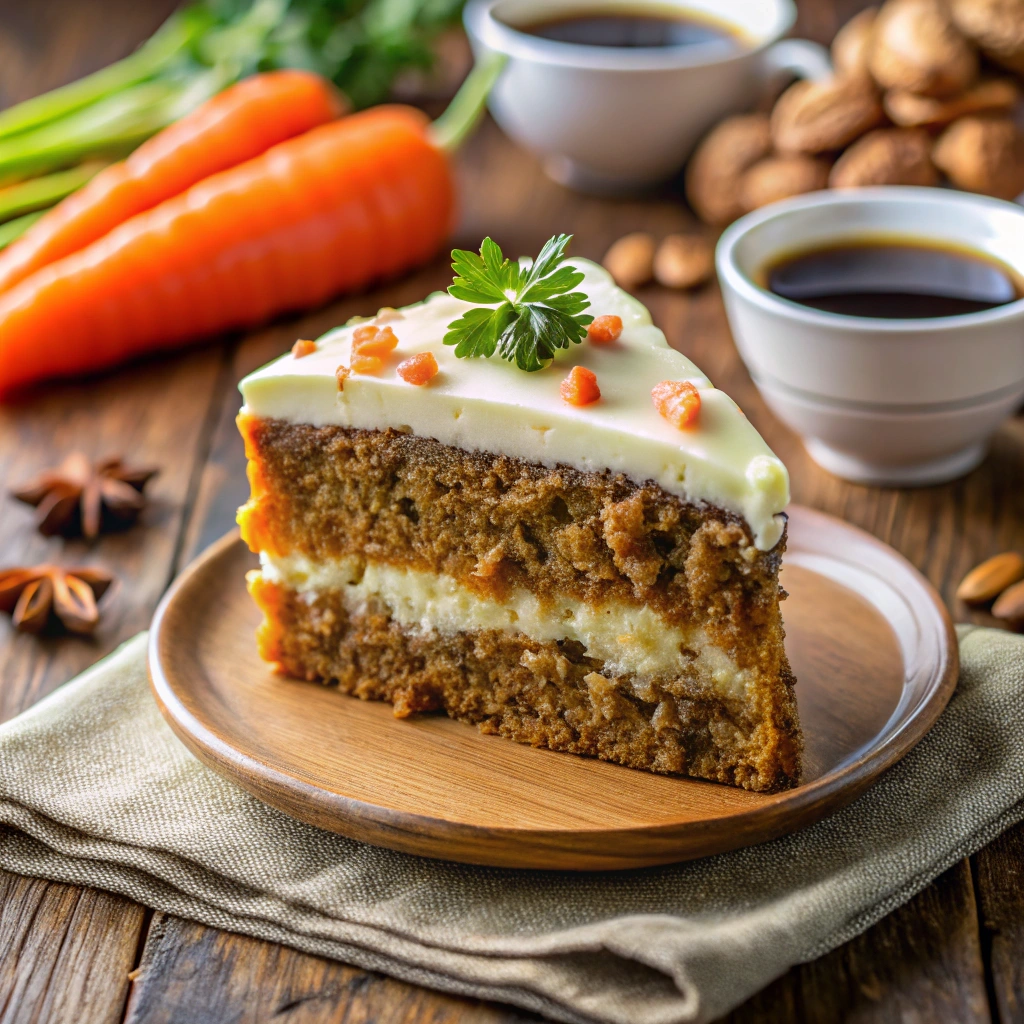
Culinary Uses For Frozen Carrots
Frozen carrots shine in many recipes, thanks to their versatility and ease of preparation.
1. Soups And Stews
They are perfect for soups and stews, adding sweetness and a tender texture.
- Use them in carrot and lentil soup or a comforting beef stew.
- Blend them into creamy soups like carrot-ginger or butternut squash.
2. Stir-Fries And Sautéed Dishes
They work wonderfully in quick stir-fries, complementing proteins and other vegetables.
- Pair them with chicken, shrimp, or tofu in a flavorful stir-fry.
- Add to fried rice or noodle dishes for a pop of color and nutrition.
Tips: Cook over high heat to maintain a slight crunch.
3. Roasted Vegetables
Roasting this versatile ingredient enhances their natural sweetness.
- Toss with olive oil, garlic, and herbs for a flavorful roasted side dish.
- Combine with potatoes, Brussels sprouts, or onions for a hearty roasted vegetable medley.
Tips: Roast at 425°F for 25–30 minutes for caramelized perfection.
4. Smoothies And Juices
They can be blended into smoothies for a subtle sweetness and vibrant color.
- Combine with oranges, mangoes, or ginger for a refreshing drink.
- Use frozen carrots as a healthy alternative to ice cubes in smoothies.
5. Baking And Desserts
Frozen carrots aren’t just for savory dishes; they can be used in baked goods too.
- Thaw and incorporate them into carrot cake, muffins, or cookies for added moisture.
- For a nutritious spin, explore the Healthy Lion’s Mane Mushroom Pasta Recipe for another creative use of healthy ingredients.
Tips For Using Frozen Carrots In Cooking
They are not only convenient but also incredibly versatile. To maximize their flavor and texture, there are specific methods to follow depending on your recipe. Here are practical tips to help you make the most of this versatile ingredient in your cooking.
1. Know When To Thaw vs. Use Frozen
Thawing Frozen Carrots
- Why Thaw? For dishes like baked goods or raw salads, thawing helps maintain the intended texture and ensures even cooking.
- How to Thaw: Place this versatile ingredient in the refrigerator for a few hours or use the microwave’s defrost setting for quicker results.
- Pro Tip: After thawing, pat carrots dry with a paper towel to remove excess moisture.
Using Carrots Directly From Frozen
- When to Skip Thawing: For soups, stews, stir-fries, and roasted dishes, carrots can be added straight from the freezer.
- Benefits: Skipping thawing saves time and helps the carrots retain their shape during cooking.
2. Enhance Flavors With Seasonings
Frozen carrots absorb flavors exceptionally well when cooked with the right seasonings.
- Savory Dishes: Use spices like cumin, garlic powder, or smoked paprika for earthy, robust flavors.
- Sweet Dishes: Add cinnamon, nutmeg, or a touch of maple syrup when preparing glazed carrots or carrot desserts.
- Herbs: Fresh or dried thyme, parsley, or rosemary elevate the natural sweetness of carrots.
3. Preserve Texture During Cooking
Avoid Overcooking
- Frozen carrots can turn mushy if overcooked. Cook until they are just tender to retain their texture.
- In stir-fries or sautés, cook over high heat for a short time to prevent sogginess.
Pair with Crisp Ingredients
- Combine this versatile ingredient with crunchy vegetables like bell peppers or broccoli for balanced textures in stir-fries or salads.
4. Use High-Quality Frozen Carrots
- Choose brands that flash-freeze carrots without added preservatives to maintain their flavor and nutritional value.
- Look for carrots that are evenly cut, as uniform sizes ensure even cooking.
Common Mistakes To Avoid
Even though frozen carrots are convenient, certain mistakes can hinder their quality and the success of your dish. Here are the most common pitfalls and how to avoid them.
1. Overcooking Frozen Carrots
- Why It’s a Problem: Overcooking can make carrots mushy and leach out their nutrients.
- Solution: For soups and stews, add this versatile ingredient toward the end of the cooking process to keep them tender but firm.
2. Ignoring Proper Storage
- Freezer Burn Issues: Improperly stored frozen carrots can develop freezer burn, affecting their texture and flavor.
- Solution: Store carrots in airtight containers or freezer-safe bags and label them with the date of freezing.
3. Using Them in Raw Dishes Without Proper Prep
- Why It’s a Problem: Frozen carrots can be watery or limp when thawed, making them unsuitable for raw salads without preparation.
- Solution: Thaw and dry carrots thoroughly before using them in recipes where a crisp texture is needed.
4. Adding Frozen Carrots Too Early in Roasted Dishes
- Why It’s a Problem: Frozen carrots take less time to cook than raw vegetables. Adding them too early can cause uneven cooking.
- Solution: Roast frozen carrots with other vegetables that cook quickly or add them halfway through the roasting time.
5. Using Low-Quality Carrots
- Why It’s a Problem: Poor-quality frozen carrots may have an off taste or inconsistent texture.
- Solution: Choose brands that flash-freeze carrots shortly after harvesting to preserve freshness and flavor.
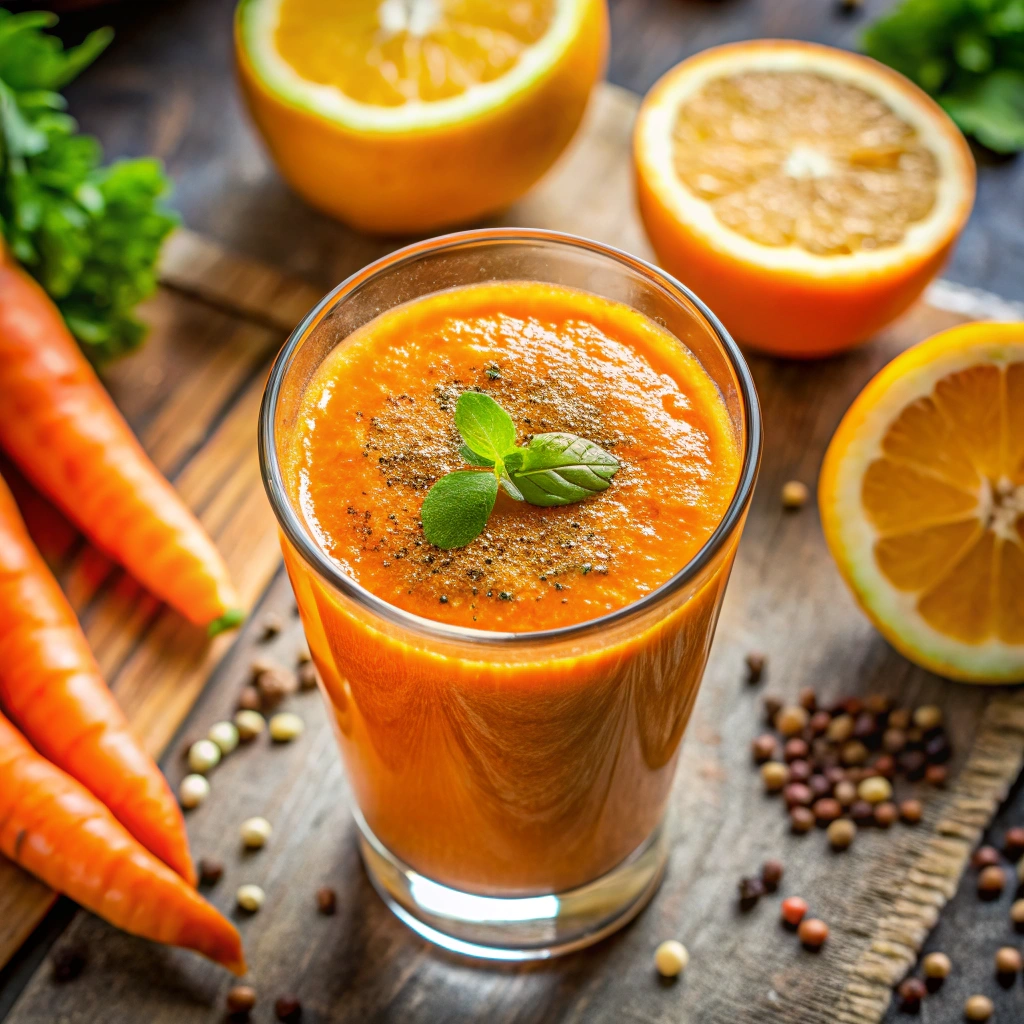
FAQs
1. Can this ingredient Be Used Directly in Soups?
Yes, they’re perfect for soups!
- Frozen carrots can be added directly to the pot without thawing.
- They soften as the soup simmers, blending seamlessly with other ingredients.
2. Do Frozen Carrots Work in Baby Food?
Absolutely!
- Frozen carrots are an excellent option for homemade baby food.
- Steam or boil until tender, then purée for a smooth consistency.
- Freezing them ensures freshness and preserves nutrients.
3. Are Frozen Carrots Good for Weight Loss?
Yes, they are a healthy, low-calorie food.
- Rich in fiber, they promote satiety and support digestion.
- Use them in salads, soups, or as roasted snacks for nutritious, filling meals.
4. Can This Ingredient Be Microwaved?
Yes, they can be microwaved for quick cooking.
- Place them in a microwave-safe dish with a bit of water.
- Cover and heat in intervals until tender, stirring occasionally.
5. Are There Specific Dishes Where Frozen Carrots Work Best?
Frozen carrots are versatile and work well in:
- Hearty stews, such as beef or vegetable-based.
- Casseroles and pot pies for added texture and flavor.
- Smoothies and purees for natural sweetness.
6. Do Frozen Carrots Taste Different from Fresh Carrots?
Slightly, but they’re still delicious.
- The freezing process can slightly alter the texture, making them softer.
- When used in cooked dishes, the difference is minimal and often unnoticeable.
7. Can I Use Frozen Carrots in Place of Fresh Carrots?
In most recipes, yes!
- Frozen options work in cooked dishes like soups, stews, and baked goods.
- For raw dishes like salads, thaw and drain them well to mimic the texture of fresh ones.
8. How Long Do Frozen Carrots Last?
They can last up to 6–9 months in the freezer.
- Store them in airtight bags or containers to avoid freezer burn.
- Label the container with the freezing date for easy tracking.
9. What Are Some Creative Ways to Use Frozen Carrots?
They can inspire a variety of dishes:
- Blend into a creamy carrot-ginger soup.
- Roast with honey and thyme for a sweet and savory side dish.
- Add to pancake batter for a fun and nutritious breakfast.
10. How Do I Prevent Freezer Burn on Frozen Carrots?
Proper storage is key:
- Use airtight containers or freezer-safe bags.
- Squeeze out as much air as possible before sealing.
- Avoid leaving them in the freezer for more than 9 months.
Conclusion
Frozen carrots are more than just a backup option—they’re a time-saving and nutrient-rich ingredient that can enhance countless meals. Whether roasted, blended into a smoothie, or baked into a decadent carrot cake, they bring versatility and nutrition to your kitchen. Their long shelf life and convenience make them a valuable addition to your meal-prep arsenal.
If you’re looking to expand your repertoire, try incorporating this versatile ingredient into soups, stir-fries, or desserts. They’re an excellent choice for meal prep, and their nutritional value remains intact thanks to the freezing process. For a creative twist, consider pairing them with complementary recipes like Leftover Rotisserie Chicken Recipes to create balanced and flavorful meals.
Don’t overlook this humble ingredient. They simplify cooking without compromising taste or nutrition. For even more ways to enjoy them, browse Frozen Carrots Recipe Ideas or visit All Recipes for a wide range of recipes. They are the key to creating delicious dishes that are as practical as they are satisfying.
Stay Connected for More Delicious Recipes!
Love what you see? Follow us on social media for daily inspiration, exclusive recipes, and behind-the-scenes fun! Join our community on Facebook, Instagram, Pinterest, and X to stay updated on all things delicious. Don’t miss out—let’s cook up something amazing together!



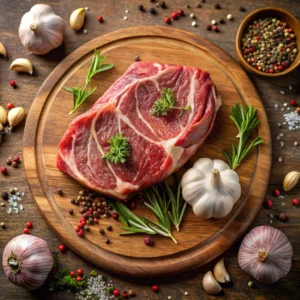
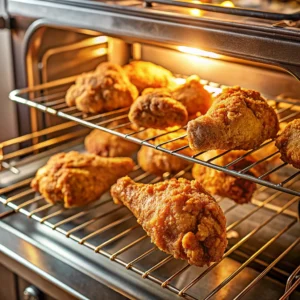

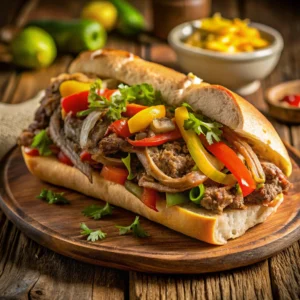
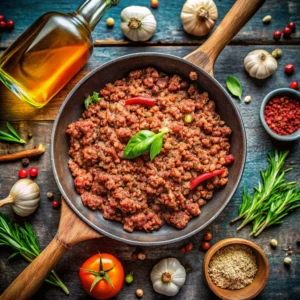
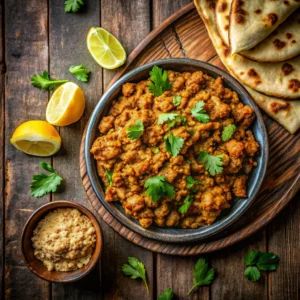
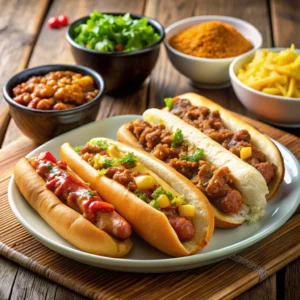
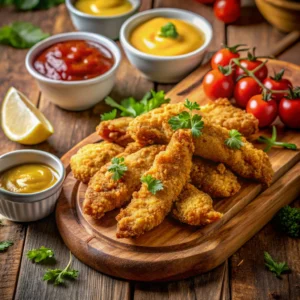
You might also like these recipes
Do You Wash Chicken Keema? The Ultimate Guide to Safe Handling
The Best Side Dishes to Serve With Chili Dogs
Is It Better to Pan Fry or Oven Bake Chicken?